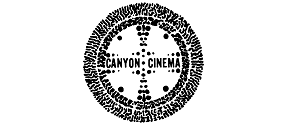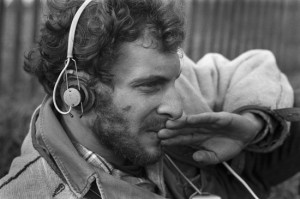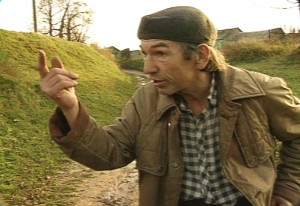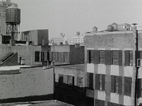Now Available – the work of Daniel Barnett returns to Canyon
Posted February 29th, 2016 in New Acquisitions, News / Events
We are delighted to announce the return of 3 films by DANIEL BARNETT to the Canyon collection. 16mm prints of WHITE HEART (1975) and THE CHINESE TYPEWRITER (1978-1983) are now available for rental, and AN ANGRAM (2003) is available for purchase on DVD.
White Heart (Daniel Barnett | 1975 | 53 minutes | COLOR | SOUND)
Rental Format: 16mm film
WHITE HEART is one of those ‘famous’ films that practically no one knows about. But its advocates are passionate about it (mostly other filmmakers – it’s greatly admired by Nathaniel Dorsky, Phil Solomon, and Saul Levine, for example).
“Daniel Barnett is a leading experimental filmmaker who develops complex metaphors in his films out of rephotography and other post-production techniques. [ . . .] White Heart is his longest and most ambitious work. ‘Barnett’s film consists of many disparate images, chosen for their strong sensual qualities, coupled with a labyrinthine and equally sensual soundtrack. After establishing the basic images, Barnett begins to interweave them, exaggerating certain qualities (color, texture) during printing. A mundane shot of a man jerkily spraying down an empty lot is adjusted so his shirt becomes a brilliant red glare. A super close-up of a fingertip holding a match is contrasty enough so every particle of sweat glistens in the lens. Concurrent sounds are similarly exaggerated and contribute to the sensual wash…. Shots are joined so that each moment resonates differently in time.’ (Steve Anker, in Visions)
The Chinese Typewriter (Daniel Barnett | 1978-1983 | 28 minutes | COLOR | SOUND)
Rental Format: 16mm film
The Chinese Typewriter was the first American film shot in China after the end of the Cultural Revolution, an extraordinary time that marked the opening of Chinese society and began China’s modernization.
The Chinese Typewriter is the longest and most complex in a series of sketches, poems and essays that I shot during a two week period visiting the major eastern cities of Beijing, Shanghai, Yangchow, Nanking and Guangzhou. It is the first in an ongoing series of poetic essays on culture and belief.
-Daniel Barnett
Gregory Solman – BOSTON PHOENIX 2/26/85:
“The Chinese Typewriter is about education and language, and the way a society is shaped by them. It exemplifies the politically committed film that defies the strict rubric of avant-garde. Barnett seems less interested in challenging traditional form than in exploding his own occidental vision. He transforms cyclonic cutting among a character-filled Chinese printing shop, a school, and street life into a visual poem that extracts the country’s fierce mechanistic energy while leaving the fragrant residue of humanity. The film is compositionally meticulous and rhythmically arresting, as Barnett goes beyond facile, formalist, dehumanization of post-Mao China imagery. Contrasting a stop action view of a schoolgirl doing a cartwheel with contemplative, pointillist, high-angle shots of sidewalk life. The repeated sloganeering of public-school apologists, spiced with oriental music and street beat forms a soundtrack with the haunting quality of a Davis Byrne/Brian Eno experiment. Red objects, from scarves around necks to newsstands draped with crimson like a shroud – pull the eye to what become found object vanishing points. Despite the multitude of images-over 3000 on 28 minutes, the film never seems capricious or ostentatious.”
An Angram (Daniel Barnett | 2003 | 42 minutes | COLOR | SOUND)
Sale Format: DVD
A video by Daniel Barnett.
The film I made from Gary Henoch and Harlow Robinson’s footage, An Anagram is not a documentary at all, but rather a poetic essay on the impact of the sudden collapse of a belief system on a culture. It has a 17 part quasi-musical structure inspired by Dmitri Shostakovich#s Preludes and Fugues that at times ignores the literal meaning of certain interviews for the fragrant affect of the language and body language; that is, certain interactions are left un-translated so that the viewer is given full and unfettered access to the musical spirit that animates the arguments and quarrels caught so delicately in the sound and images.
-Daniel Barnett
See Daniel Barnett’s filmmaker page in the Canyon Cinema catalog.





